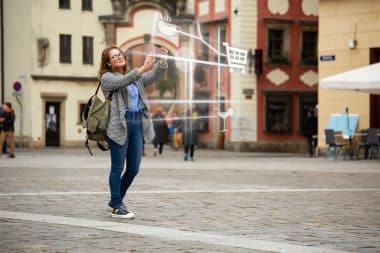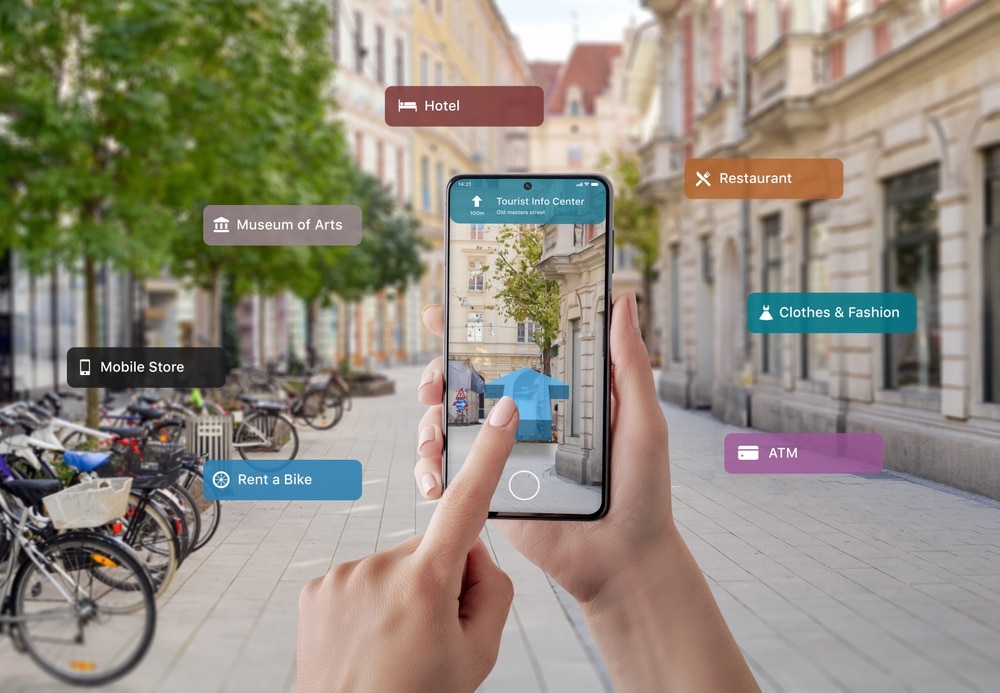What are smart cities and how do they influence travel?
Smart cities are modern urban spaces that rely on technological innovations to improve the quality of life of residents and the experiences of visitors.
These cities integrate digital technologies into various Software such as IoT (Internet of Things), big data, and artificial intelligence to use information more efficiently, optimize public services, and enable personalized experiences.
Smart cities thus offer numerous advantages for tourists: they can make their journey more efficient, receive real-time information and experience the city in a completely new way.
The possibilities go far beyond the usual offers such as free Wi-Fi or navigation apps.
Technology examples
Intelligent transport systems and smart mobility
Smart cities are pioneers in the implementation of intelligent transportation systems that help tourists move smoothly in unfamiliar cities.
In addition to the common apps that broker public transport or rental cars, cities could introduce autonomous vehicles and on-demand transport services specifically tailored to tourists in the near future.
These vehicles could suggest the most efficient route based on the time of day, the current traffic situation and the interests of the travelers.
Another concept is the smart integration of traffic data.
With one click, tourists could see all available transportation options — from e-scooters to bicycles to carpooling — and book them directly without having to use multiple apps.
The city analyzes traffic information in real time and dynamically adjusts transport services to avoid bottlenecks.
Augmented and virtual reality for an immersive experience

Augmented Reality (AR) and Virtual Reality (VR) offer tourists a unique experience in smart cities.
With AR apps, travelers can walk through the city and have additional information about historic buildings, monuments and cultural sights projected directly into their field of vision.
For example, a walk through Rome could provide instant information about Ancient Rome by overlaying a virtual reconstruction of landmarks as they once looked.
Even more interesting could be the integration of VR into museums and cultural sites.
Thanks to VR, visitors can immerse themselves in virtual worlds and experience historical events up close.
This technology allows tourists to learn more about the city’s history and culture in an interactive and fun way.
Intelligent networks: Free Wi-Fi and real-time information
Smart cities often offer free Wi-Fi networks that are set up specifically for tourists.
However, these networks go far beyond simple internet access.
They can serve as information platforms that provide tourists with tailored recommendations in real-time, such as restaurant tips, hints at local events, or even alternative routes to avoid crowded landmarks.
These networks could be coupled with urban information systems that provide up-to-date weather forecasts, traffic information, or waiting times in popular locations.
In the future, Wi-Fi networks and smart mobility platforms could be further developed to analyze the movement patterns of tourists and thus provide personalized recommendations for sights and activities.
This would make it easier for tourists to plan day trips and help them experience more of the city.
Big Data and Artificial Intelligence for Personalized Tours
One of the biggest challenges for tourists in a new city is choosing the best things to see and do.
Smart cities can remedy this by using big data and artificial intelligence.
These technologies could use data such as the tourist’s interests, current occupancy of attractions and weather conditions to create personalized tours.
For example, an art lover might get a route through museums and galleries, while a foodie might get restaurant recommendations for local specialties.
Big data could also create new ways to monitor and manage tourism in the city.
Tourist crowds could be analysed in real time and visitor flows controlled accordingly.
This would not only improve the experience for travelers, but also help cities avoid congestion in popular areas.
Sustainable tourism and smart environmental solutions
Since the ecological footprint of tourism plays a major role worldwide, smart cities could integrate technologies that help tourists travel in a more environmentally friendly way.
Apps could point tourists to sustainable modes of transport, such as electric bikes or solar buses, and encourage them to make greener choices.
At the same time, cities could provide interactive maps that show areas with low air pollution or suggest climate-friendly routes that minimize CO2 emissions.
Another potential future scenario is smart waste management systems that inform tourists where to dispose of recyclable materials, or apps that show how environmentally friendly certain hotels or restaurants are.
Connected social platforms for tourists
Smart cities could also offer social platforms that allow tourists to network and share experiences.
These platforms could bring together travelers with similar interests to organize joint tours or attend events.
For example, if someone is interested in photography, a smart platform could suggest other tourists with the same interests and organize a group tour of picturesque places in the city.
Such social interactions could not only enrich the travel experience, but also foster new friendships and networks that help tourists explore the city in a much deeper and more meaningful way.
Advantages for tourists
Comfortable movement and time savings
The integration of smart technologies into urban planning makes getting around easier and more efficient for tourists.
Thanks to intelligent transportation systems and navigation services, travelers can find the best route while avoiding traffic problems or crowds.
This not only saves time, but also reduces the stress of traveling in unfamiliar cities.
Personalized experiences
Smart cities offer tourists tailored experiences based on their individual preferences.
Whether it’s through personalized city tours or real-time information, tourists have the opportunity to experience a city in a way that suits their interests.
This makes every trip unique and more meaningful.
Sustainability and comfort
By using sustainable technologies, tourists can travel in an environmentally conscious way without sacrificing comfort.
From smart transportation to sustainable city tours, smart cities help travelers minimize their environmental footprint while enjoying the city stress-free.
The future of tourism lies in the hands of smart cities that use technology to make travel more efficient, comfortable and sustainable.
From autonomous vehicles to personalized experiences, the possibilities are limitless.
As cities evolve, the tourist travel experience is also becoming more interactive and enriching, making every visit a unique adventure.


